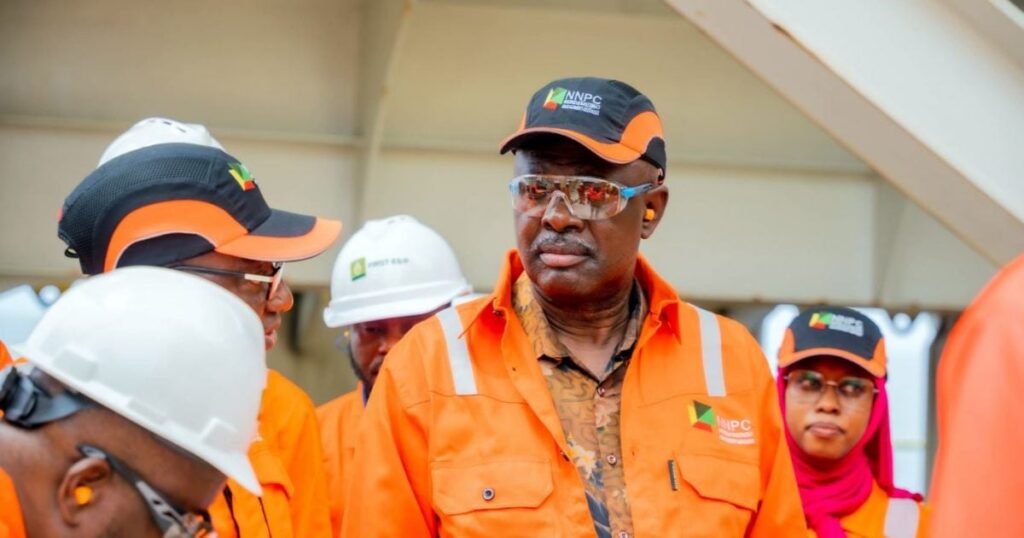The Minister of State for Petroleum Resources (Oil), Heineken Lokpobiri, has disclosed that African countries imported hydrocarbon resources valued at $120bn in 2024.
Lokpobiri stated this during the ongoing OTL Africa Downstream Energy Week in Lagos.
Hydrocarbon resources are natural deposits of carbon- and hydrogen-based compounds, primarily fossil fuels such as crude oil, natural gas, and coal. These resources are a major source of energy, providing fuel for transportation and industry.
According to him, the volume of imported petroleum resources was a testament to Africa’s strength as a major market for energy consumption.
“Data has shown that Africa has enough markets. By 2024, the data available shows that Africa imported $120bn worth of hydrocarbon resources. That shows that Africa has the markets,” he said.
However, Lokpobiri expressed concern that despite having the markets, Africa has limited refining capacity and distribution networks. Consequently, Africa’s money goes to countries outside the continent.
He noted that Nigeria was, however, planning to retain a proportion of that value.
“Because we have limited refining capacity and we also have a limited distribution network, most of the money still goes back to countries outside the continent. But for Nigeria, our target is to see how we can retain a proportion of that value.
“The idea is to make Nigeria the refining and distribution hub for Africa. I can tell you that the entire continent is waiting for Nigeria. Those of you who are in the downstream sector know that when you’re bringing products, you don’t just distribute to Nigeria; it goes to the rest of the sub-region,” he stated.
In his address, Governor Babajide Sanwo-Olu, represented by the Commissioner for Energy, Biodun Ogunleye, commended the organisers for sustaining a platform that he said had shaped downstream reforms and attracted investments across the continent for nearly two decades.
The governor praised OTL Africa’s impact, saying it had played a crucial role in shaping the agenda for downstream development across Africa, sparking reforms, attracting investments, and fostering discussions that had led to meaningful change.
Highlighting Lagos’s role as host and energy hub, Sanwo-Olu said, “This lasting connection reinforces Lagos’s status as the energy and logistics capital of sub-Saharan Africa, a true hub of innovation, enterprise, and strategic investment.”
“Here in Lagos, we wholeheartedly embrace that vision. With our Lagos State Electricity Policy and the Lagos Energy Transition Plan, we are working to expand access to clean energy, promote private involvement, and establish Lagos as a leading example of subnational leadership in Africa’s energy transition,” he added.
Sanwo-Olu reaffirmed Lagos’s commitment to collaboration on platforms like OTL Africa, which bring together policymakers, regulators, investors, and innovators to create a sustainable and thriving energy future.
“I firmly believe that the discussions and connections made here will spark new opportunities for Lagos, for Nigeria, and for Africa.”
In his opening remarks, the Chairman of the Advisory Board of OTL Africa Downstream Energy Week, Adetunji Oyebanji, called for renewed collaboration, policy consistency, and innovation to drive Africa’s energy sustainability and competitiveness in a rapidly changing global landscape.
Speaking on the theme ‘Energy Sustainability: Growth Beyond Boundaries & Competition’, Oyebanji said it underscored the need for Africa and Nigeria to look beyond conventional limits and create an energy future anchored on integration, inclusiveness, and responsible growth.
He described the OTL conference as a bridge between policy and practice, bringing together regulators, operators, investors, and innovators to shape the future of Africa’s downstream energy industry.
“Energy sustainability is not merely about preserving resources; it is about ensuring that our growth today does not compromise the prosperity of tomorrow. We must build an industry that is competitive, responsible, and adaptable to a rapidly changing global environment,” he said.














